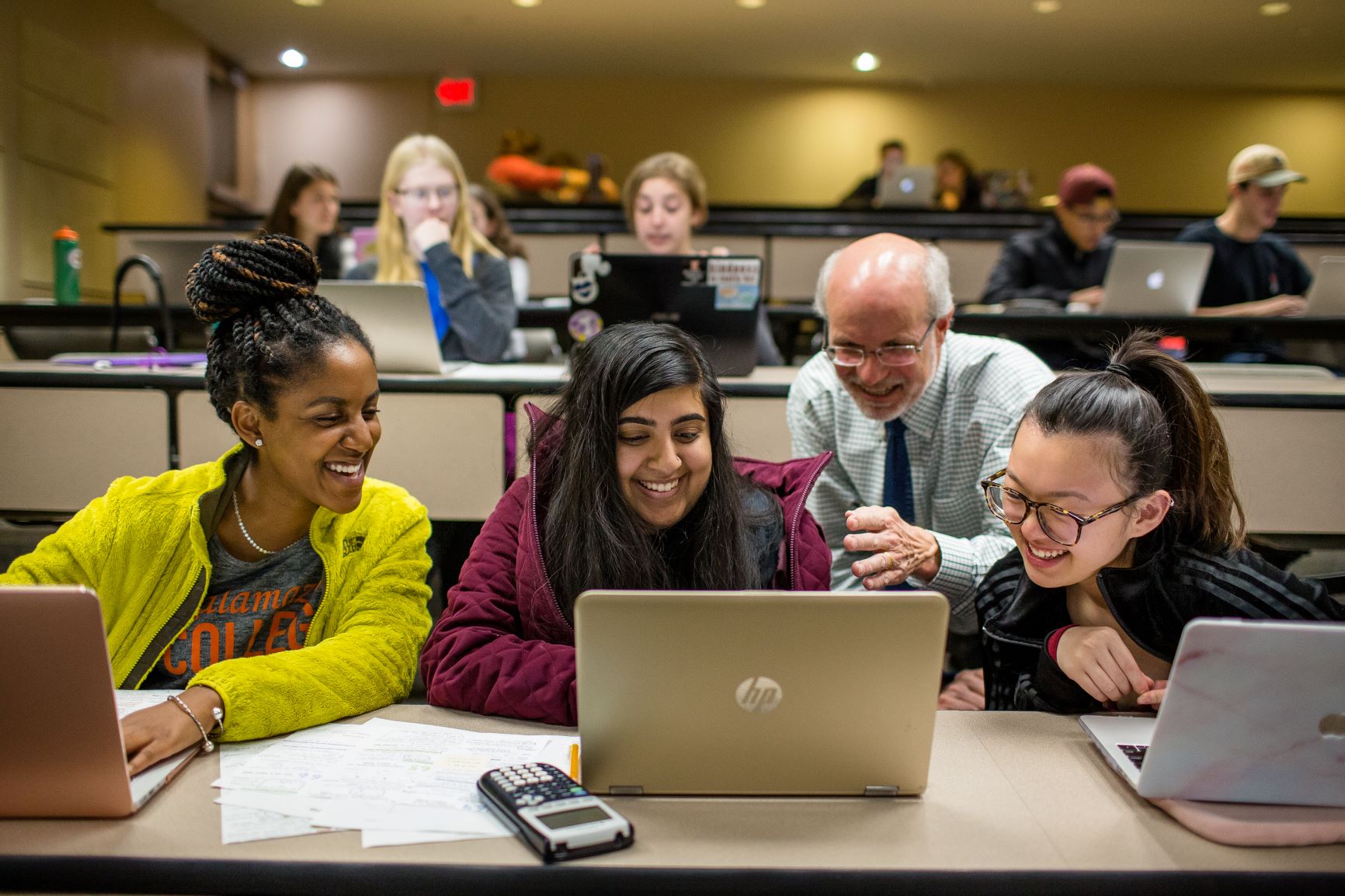
InTRO
Inclusive Teaching and Revised On Campus Ramps (InTRO) is a priority within KCIE.
With this priority we seek to provide students taking entry-level science and math courses with clearer entry points to those disciplines and guidance to potential careers. This work is in collaboration with the faculty of the science division.
Principles/Outcomes/Goals for InTRO Lane Activities
The Howard Hughes Medical Institute has awarded a number of Inclusive Excellence grants to institutions across the USA with the ambitious goal of making science education in particular and the institution as a whole, “inclusive.” Awarded institutions were asked to look inward and assess what barriers exist that inhibit the inclusion of all students in the learning, and for campuses to develop programming to increase students’ success.
2023-2024 Initiatives open to ALL faculty (not just STEM)
HHMI sponsored work in recent years have made more explicit the expectations for inclusive teaching. Therefore, all faculty are expected to design and teach courses that promote an inclusive learning environment for all students. The HHMI InTRO lane seeks to facilitate new course development and new course modifications by compensating faculty for their time. We aim to grow the community of inclusive teachers at Kalamazoo College.
See resource list below for ideas.
Email Binney.Girdler@kzoo.edu with proposals.
New course development
Primarily aimed at first and second-year faculty members who are developing their course rosters from scratch, but open to continuing faculty who are developing a new course. We will support your work with a stipend for each faculty member and will also fund necessary equipment or supplies.
For ALL faculty.
Stipend Structure:
New course or substantial course redesign: $1500
To apply, please email Binney Girdler (girdler@kzoo.edu) with the following information: (1) Proposed new (or new to you) course name, number and audience. (2) One or two sentences describing your initial inclusivity goals (see the resource lists below for a start). (3) Willingness to share your syllabus (finished or draft) and/or join a gathering of faculty in this academic year for discussion and idea-sharing.
Try out a new idea
Try out a new idea in your existing class. You don’t have to re-invent the wheel! See the resource list at the bottom of this page for ideas.
For ALL faculty.
Stipend Structure:
Module or course element redesign: $500
To apply, please email Binney Girdler (girdler@kzoo.edu) with the following information: (1) Proposed new (or new to you) course name, number and audience. (2) One or two sentences describing your initial inclusivity goals (see the resource lists below for a start). (3) Willingness to share your syllabus (finished or draft) and/or join a gathering of faculty in this academic year for discussion and idea-sharing.
Sign up for a presentation and Q&A
Have you already tried out a new approach or made a change to one of your courses that promotes an inclusive learning environment for all students? We would like to reward you post hoc! Sign up to tell your colleagues about what you found. We will schedule a common time meeting in the Teaching Commons and provide lunch for all who sign up.
Open to all disciplines.
Stipend Structure:
One-time presentation and moderation of Q&A: $500
Please email Binney Girdler (girdler@kzoo.edu) with the following information: (1) One or two sentences describing your inclusivity innovation(s), including the course(s) impacted. (2) Which term and week you would like to present to your peers.
Inclusive Teaching Resources
- From K College Faculty Personnel Committee Guidelines “On Diversity, Equity, Inclusion and Accessibility”
- Inclusive Teaching Guide (Columbia University)
- Inclusive Course Design (Notre Dame University)
- Inventory of Inclusive Teaching Strategies (University of Michigan Center for Research on Learning and Teaching)
- Inclusive Course Design (Derek Bok Center for Teaching and Learning at Harvard University)
- Education for Equity and Inclusion (Harvard Graduate School of Education)
- Inclusive Teaching Toolkit (Western Washington University)
Please let us know if you find an excellent resource that we should post here!
